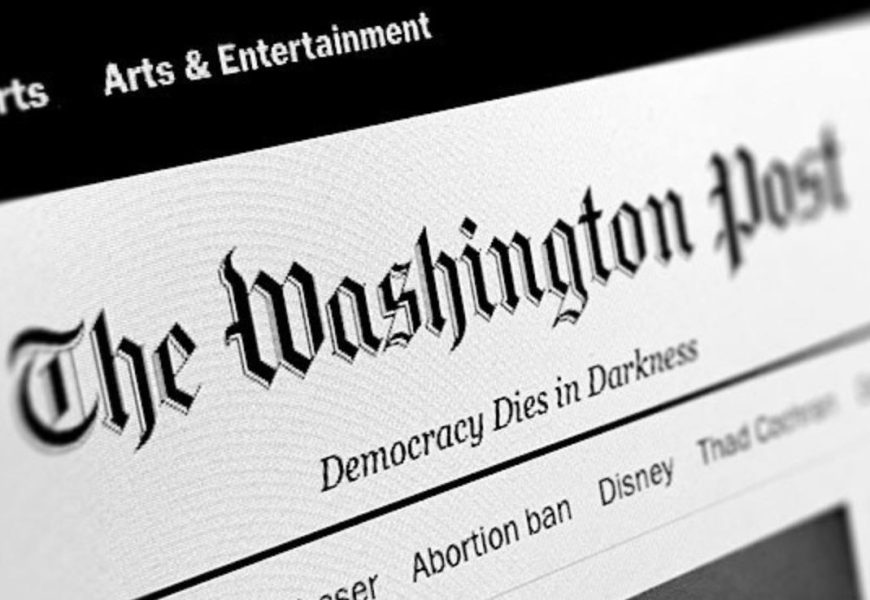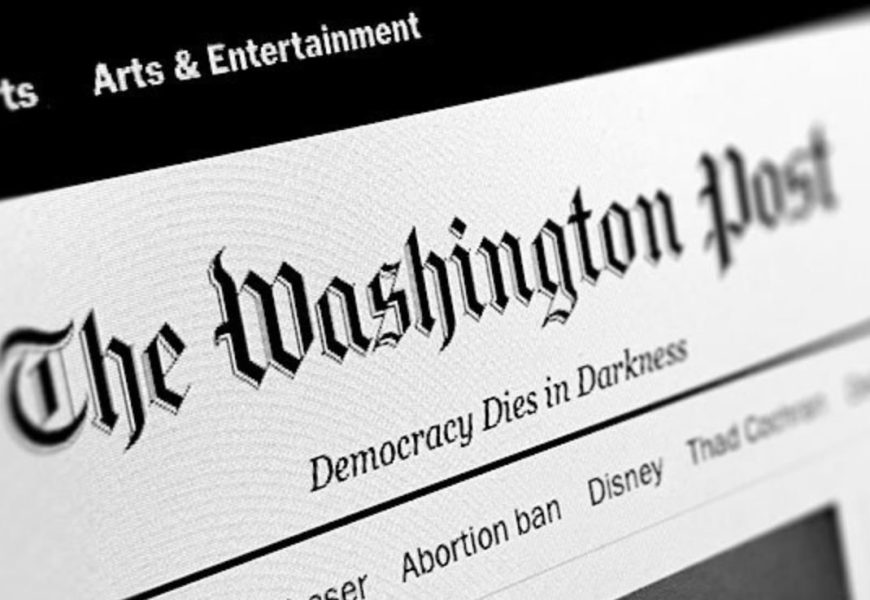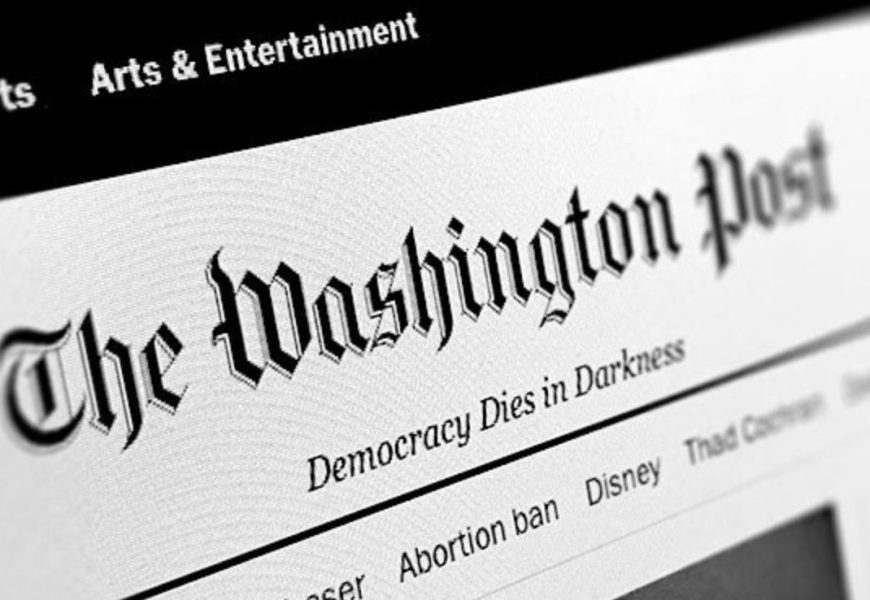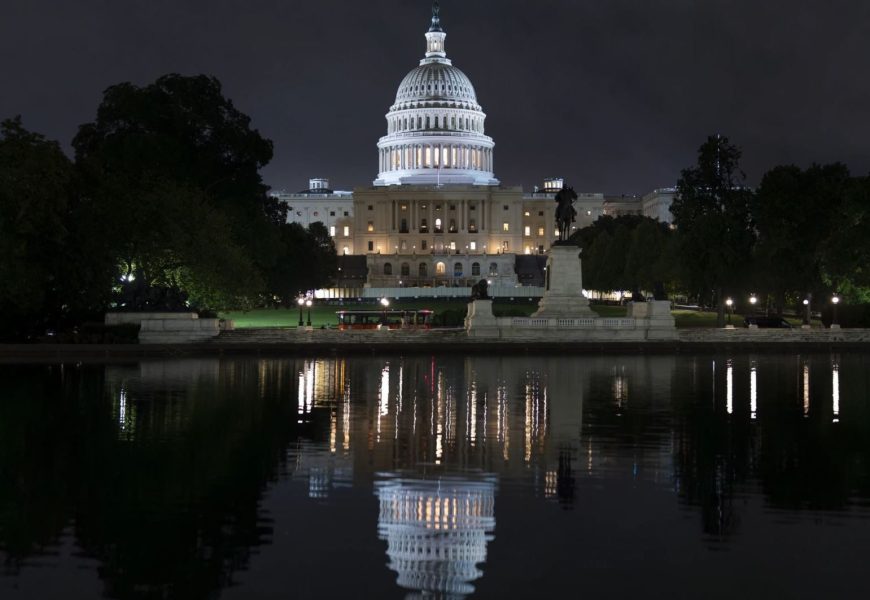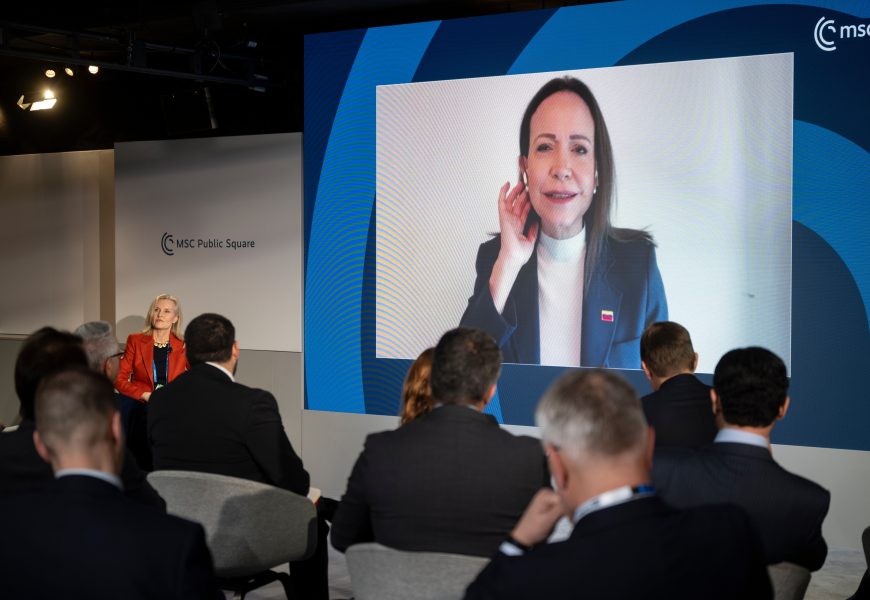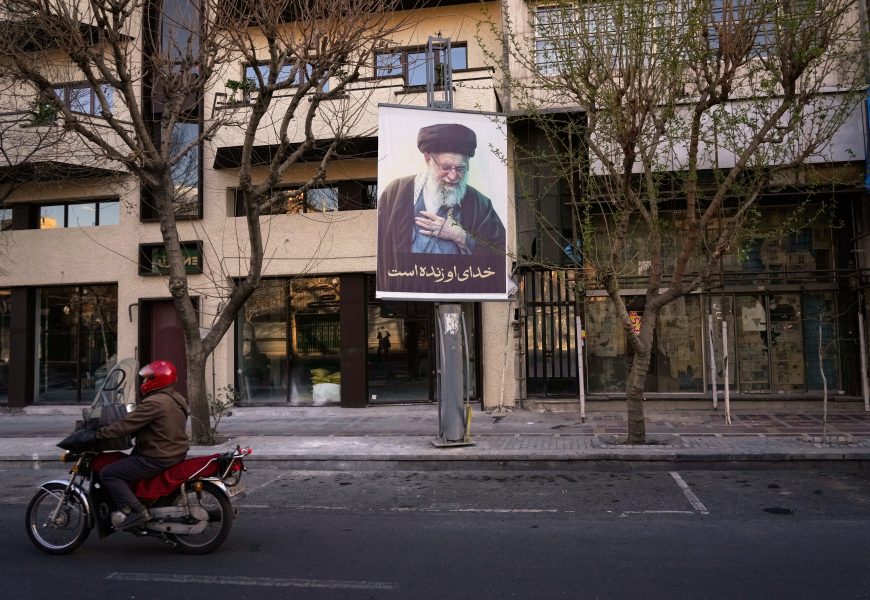Excerpts from recent editorials in the United States and abroad:
Editorials from The New York Times, The Wall Street Journal, The Washington Post and others
Excerpts from recent editorials in the United States and abroad:
___
Nov. 17 - The Wall Street Journal on Trump, Gaza and the U.N. Security Council
Maybe the United Nations isn't as useless as it so often shows. On Monday the Security Council endorsed President Trump's 20-point peace plan for Gaza, ratifying for the first time the requirements that Hamas disarm and Gaza be demilitarized. The resolution passed 13-0, with Russia and China abstaining. It's a setback for the terrorists.
Many had worried that the U.S. jaunt to the Security Council would come at the price of bending the peace plan's terms for Hamas or adding anti-Israel terms. Would France's Emmanuel Macron elbow his way into the deal's implementation? Would Russia and China transform the Trump initiative into another U.N. peacekeeping boondoggle?
Not this time. Credit to Mr. Trump and U.N. Ambassador Mike Waltz for flexing U.S. diplomatic muscle. That's the only reason this text, which detracts nothing from the original 20 Trump points, could get through. Mr. Waltz calls it the most pro-Israel Security Council resolution in decades.
That's a low bar, but consider the point. This resolution doesn't pretend there is currently a Palestinian state. It doesn't demand a risky Israeli withdrawal from the West Bank and east Jerusalem and the expulsion of every Jew living there. It doesn't prejudice negotiations by specifying final borders on "1967 lines." It doesn't condition progress in Gaza on the creation of a Palestinian state, which it treats instead as a highly contingent event of its own.
The resolution, like the Trump plan, says that if the PA undergoes a stringent course of reform and deradicalization laid out by Mr. Trump in his first term, "the conditions may finally be in place for a credible pathway to Palestinian self-determination and statehood." In other words, the time to talk about statehood is when such a state would cease to be a mortal threat to Israel.
The resolution also authorizes Israel's presence in a Gaza buffer zone and conditions PA administration of Gaza until it "can securely and effectively take back control of Gaza." This should be understood as a requirement that the PA be capable of restraining Hamas and wanted by the people of Gaza-it isn't currently-rather than parachuted in and imposed on them.
It all sounds sensible and it doesn't sound like the U.N., which in September was saying the opposite via a nonbinding General Assembly resolution. That was when pressure on Israel was at its peak. No longer. On Monday a Bloomberg headline declared "Israel Is a Markets Favorite" and Germany lifted its partial arms embargo. Israeli defense firms are racking up record deals to export abroad.
The way to tell the U.N. has done something out of character is that Hamas has issued a statement condemning the resolution. In particular, Hamas announced, "The Palestinian factions also stressed their rejection of any clause related to disarming Gaza."
Israeli leader Benjamin Netanyahu and Mr. Trump are no longer the only ones insisting on that. By not disarming, Hamas is in continuing breach of the agreement, holding up the reconstruction of Gaza and the rest. The question is what Mr. Trump is willing to do about it. If "Phase Two" of his plan isn't working, he'll need the bravery to call it quits-as the "peace processors" of old never could.
___
Nov. 12 - The New York Times on abortion access in the U.S.
After the Supreme Court reversed Roe v. Wade and ended the constitutional right to abortion three years ago, both supporters and opponents of the court's ruling expected the number of abortions to fall. After all, nearly 40 percent of U.S. women now live in a state with severe restrictions. Instead, the number of women receiving abortions has increased nationwide, even in most states with bans. This surprising outcome shows that women who want or need to end their pregnancies are determined to find ways to do so - and that abortion pills have transformed the practice of reproductive medicine.
One in four abortions in the United States now takes place through telehealth - with pills that people order online. A doctor writes a prescription and a mail-order pharmacy fills it. When the pills arrive, women, including many living in red states, can take them at home to end a pregnancy in its first few months. The method has proved remarkably safe and effective, according to study after study. Pioneered in 2006 by the Dutch doctor Rebecca Gomperts to serve women mostly in low-income countries where abortion was criminal, telehealth abortion has become critical for maintaining access in the United States.
But it would be a mistake to assume that this status quo will continue. Republican politicians are working hard to restrict telehealth abortion through a combination of state and federal action. For abortions to remain as accessible as they have been in the past three years, defenders of reproductive health and freedom will need to fight back. They can do so confident that public opinion is on their side. Americans think medication abortion should be legal by a margin of about two to one.
The primary way that abortion opponents are trying to restrict access is to block the interstate mailing of abortion pills. Louisiana and Texas have taken the most aggressive steps so far. In Louisiana, prosecutors have filed criminal charges against abortion providers in New York and California for prescribing and sending pills from out of state. In Texas, the attorney general, Ken Paxton, and a private lawyer, Jonathan Mitchell, have filed lawsuits against out-of-state providers and Aid Access, which Ms. Gomperts founded and is one of the largest telehealth services.
On Sept. 17, Texas invited a flood of new lawsuits with a bill, the first of its kind, that in most instances allows a private citizen to sue people who make, distribute or prescribe abortion pills to anyone in Texas. Each suit allows for at least $100,000 in damages and can be brought even if no abortion takes place.
The Trump administration may impose other barriers. President Trump, recognizing the popularity of abortion access, has been cagey on the issue. He has taken credit for appointing the Supreme Court justices who overturned Roe v. Wade while saying he would not sign a federal abortion ban. He also said that individual states should be free to set their own policies. That position leaves plenty of room for red states to crack down on abortion pills, threatening the reproductive freedom and well-being of women who live there.
One worrisome development is that Robert F. Kennedy Jr., the secretary of health and human services, has directed the Food and Drug Administration to review the safety of mifepristone, an abortion pill, based on what he called "new data." Mr. Kennedy appeared to be referring to an unpublished paper by a conservative think tank, the Ethics and Public Policy Center. Other researchers havedebunked that paper as junk science. Abortion opponents have been making bogus claims about abortion pills for decades. They have exaggerated the risks since the F.D.A. first reviewed mifepristone in the 1990s. Since then, evidence has only mounted that the medication is even safer than drugs like penicillin and Viagra. (The F.D.A. recently approved a generic version of mifepristone.)
Nonetheless, 22 Republican state attorneys cited the debunked paper in pressing the F.D.A. to restrict mifepristone. In response, Mr. Kennedy said that his department would conduct a review. As with vaccines, it is a sign that he will not let good science stand in the way of bad policy.
More immediately, the Trump administration is stripping Medicaid funding from Planned Parenthood. Congress has long banned the use of federal funds for abortions in almost all cases. By now cutting the money Planned Parenthood uses to provide other services, such as birth control and breast cancer screenings, the administration can force the shutdown of clinics that rely on Medicaid because they treat many low-income patients, reducing access to both abortion and other forms of medical care. In rural areas, Planned Parenthood is sometimes the only provider of primary and family-planning care for poor people. Already, its clinics have closed in California and Ohio, and paused providing abortions in Wisconsin.
What can be done in response? Two ideas - one immediate, one longer term - are most promising.
First, states can make up for the Medicaid funding that Planned Parenthood has lost. In Washington State, Gov. Bob Ferguson has committed to spending more than $11 million this year to do so, even though it will require other tough budget decisions. Other states should follow Washington's lead, especially California, where 80 percent of Planned Parenthood patients rely on the state's Medicaid program.
The second issue - how to maintain access to pills - is more difficult. For now, eight blue states have enacted laws to protect people who provide abortion pills to women in other states. These policies are known as telehealth shield laws, and Massachusetts passed the first one in 2022. The eight states will not comply with any legal action that another state takes against a provider who sends pills across state borders. New York, for example, is refusing to help Texas enforce a judgment of $113,000 against Margaret Carpenter, a New York doctor. In September, California began allowing providers to remove their names, as well as the names of patients and pharmacists, from pill bottles.
These policies have clear benefits: They help women in the 18 states where abortion is tightly restricted to have control of their own bodies and lives. But in the longer run, shield laws may prove legally vulnerable. In most circumstances, states help enforce one another's laws, rather than the opposite, and a challenge to shield laws is likely to wind up at the Supreme Court. If the conservative majority strikes them down, it will undermine abortion access in the aftermath of Dobbs v. Jackson Women's Health Organization.
That brings us to the more enduring solution to this problem: Congress should set a floor that allows for basic access to abortion in every state. Such a law would return the country to a version of the legal landscape before the Supreme Court allowed burdensome restrictions in the 1990s and then reversed Roe v. Wade entirely in 2022 with Dobbs. It would reflect the clear national preference for access early in pregnancy. Nearly every other high-income country in the world, including European countries with large Catholic populations, provides this access, often with public funding. Blue states would continue to provide broader access.
The national law should also repeal the Comstock Act, which was passed in 1873 and has not been enforced for nearly a century but on paper still criminalizes the mailing of any item used for abortion. And a national law should fund high-quality sex education and birth control, which tend to reduce the number of unplanned pregnancies. Ultimately, reproductive health care should be integrated into mainstream medicine.
Abortion pills have prevented Dobbs from unleashing all the ill effects that many people feared. But as threats to the pills' availability grow, it would be a mistake if the surprising trends of the last three years led to complacency.
Already, Dobbs has caused burdens and tragedies. Abortion pills are not for everyone. Some women do not want to deal with the pain and bleeding the pills cause, or are beyond the first trimester and must travel hundreds of miles and cross state lines in search of an in-person surgical abortion. Since Dobbs, more than 100 patients have been denied emergency care, or experienced harrowing delays, because doctors were afraid to treat them. At least five women in Georgia and Texas died because they did not receive care that they needed, according to ProPublica.
Each of these losses is terrible and preventable. "Did she really have to be the sacrifice?" asked Cjauna Williams after her sister Amber Thurman, a 28-year-old mother, died from an infection after doctors were too slow to remove tissue from an incomplete abortion.
American women need the freedom to determine the course of their own lives. Sometimes, access to abortion is even more than that: It can be lifesaving.
ONLINE: https://www.nytimes.com/2025/11/12/opinion/abortion-pills.html
___
Nov. 15 - The Washington Post on Trump, tariffs and affordability
Did something spook President Donald Trump? Late Friday, he announced that he would roll back tariffs on food, just days after he embraced a much more moderate tone on immigration. The question is whether this is a momentary shift or a real change of heart prompted by sour polling, scary economic indicators and private conversations with alarmed business leaders.
Democrats dominated state and local elections this month, and "affordability" instantly became every politician's favorite word. Yet the president scoffed at voter concerns about rising prices and insisted that America was becoming more affordable on his watch. But voters tend to recognize reality over what people in power say, even if they voted for them.
Trump's Friday executive order rescinded reciprocal tariffs he imposed on dozens of agricultural products, including beef and coffee. These goods have grown more expensive, and that has taken a toll on consumer confidence. The strain is particularly acute heading into the holiday season.
This reversal came a day after the administration announced deals with four countries to relax tariffs on bananas and other consumer goods that the U.S. doesn't really produce. That's progress, but it never made sense to impose the duties. In touting the move, Treasury Secretary Scott Bessent implicitly acknowledged that the tariffs have raised prices for consumers. This was obviously going to happen, but administration officials who should know better insisted that foreigners or retailers would absorb the costs rather than pass them on to consumers.
Trump also sounded more conciliatory on immigration. He made the case for H-1B visas during an interview on Fox News, saying they're necessary because American workers lack " certain talents." This is quite a shift from September, when he signed a proclamation intended to raise the fee for a visa to $100,000. In an even starker modulation, Homeland Security Secretary Kristi L. Noem boasted Wednesday on "Fox & Friends" that "more people are becoming naturalized under this administration than ever before."
These comments drew the ire of many online MAGA activists. Yet no doubt the administration noticed that many of the Hispanic voters who gravitated toward the president a year ago had already moved back into the Democratic column in New Jersey and Virginia. Nine months of viral videos showing masked immigration officers clashing with nonviolent immigrants took a toll.
Over dinner Wednesday, Trump reportedly asked a group of CEOs and Wall Street titans for ideas on how to make life more affordable and prevent the American Dream from slipping out of reach. He also told the group that he thinks his policies will enable the economy to grow 5 to 6 percent a year. Such growth is never going to happen with maximalist tariffs or mass deportations of otherwise law-abiding workers.
The one-two punch of immigration restrictionism and extreme protectionism has already dragged the economy down. Layoffs are at recession-like levels, and finding a job is as hard as it's been in years. The National Retail Federation warns that seasonal hiring for Christmas may drop as much as 60 percent from last year, partly because companies are trying to cut costs due to higher tariffs.
The 43-day government shutdown limited data collection and reporting. The White House said Thursday that the October inflation and jobs reports will " likely never " be released. Press secretary Karoline Leavitt tried to get ahead of potentially bad numbers next month by saying that the shutdown "may have permanently damaged the federal statistical system."
Business leaders often express far greater anxiety about Trump's chaotic trade policy in private than public. Tariffs continue to raise production costs, and their full effect hasn't even been felt by consumers because there is a lag between higher wholesale prices and what stuff costs on shelves at supermarkets. Trump backing off his reciprocal tariffs on food will help some, but it's only a partial fix. The Supreme Court would do Trump, and the country, a real favor by striking down his legally questionable tariffs.
ONLINE: https://www.washingtonpost.com/opinions/2025/11/15/affordability-tariffs-food-prices-h1b-trump/
___
Nov. 16 - The Guardian on a new nuclear age
When Eisaku Satō, a former prime minister of Japan, received the Nobel peace prize in 1974 after committing his country to not making nuclear bombs, owning them or allowing them on its territory, he assured the audience: "I have no doubt that this policy will be pursued by all future governments."
Yet last week, Sanae Takaichi, Japan's new prime minister, declined to say whether the country that understands the cost of nuclear war better than any other would stand by its commitment - reflecting the bleak broader outlook. Eighty years after the US dropped Little Boy on Hiroshima, incinerating tens of thousands of people, and almost 40 after Mikhail Gorbachev and Ronald Reagan seriously discussed nuclear abolition in Reykjavik, the spectre looms once more. Last month, Donald Trump ordered the US military to match other countries' nuclear weapons testing.
Vipin Narang and Pranay Vaddi, who worked on nuclear strategy in the Biden administration, warn that arms control has essentially broken down and that the growing risks amount to a "Category 5 hurricane". Ankit Panda, another noted expert in the field, has published The New Nuclear Age: At the Precipice of Armageddon. Tellingly, the subject has returned to pop culture. Kathryn Bigelow's new movie A House of Dynamite shows a nuclear attack targeting Chicago.
The last nuclear arms control treaty between Russia and the US, New Start, is due to expire in February. For decades the main fear was of terrorists or rogue states such as North Korea; now there is a new great power rivalry. In place of the old standoff between two hegemons comes a more complicated contest, with China massively expanding its capabilities, and broader proliferation. For unsettled US allies such as South Korea and Poland, acquiring their own arsenals is no longer out of the question. The nuclear taboo is wearing thin. The Biden administration believed Vladimir Putin could well follow through on his nuclear threats in Ukraine.
Donald Trump pulled out of the intermediate-range nuclear forces treaty, which Russia had been violating, in his first term. In withdrawing from the JCPOA nuclear deal with Iran in 2018, and bombing Iran's nuclear facilities this year, though it did not have an active weapons programme, he told potential adversaries that the best strategy is North Korea's: arm yourself as soon as you can. China was content with a relatively modest arsenal for decades after it acquired the bomb; its breakneck expansion reflects its growing global might, but its efforts ramped up after Mr Trump was first elected.
Mr Trump's confusing comments on nuclear tests (prompting counter-threats from Mr Putin) appear to reflect his misunderstanding of Russian systems tests which, though alarming, do not breach the de facto moratorium. A resumption - the US last detonated a warhead in 1992 - would probably be more useful to adversaries than to the US itself. It would also strengthen suspicions that non-proliferation is window dressing for the maintenance of the nuclear monopoly of a few states, rather than a serious commitment for the sake of humanity.
Mr Trump, said to truly fear nuclear war, should instead challenge Mr Putin to make good on his proposal of a one-year extension of New Start treaty limits and revive non-proliferation endeavours by championing the comprehensive test ban treaty. The US and China have not ratified it; Russia withdrew ratification. A president aspiring to a Nobel peace prize could set an example that is sorely needed.
___
Nov. 12 - The St. Louis Post-Dispatch on the recent government shutdown
More than 40 days after plunging America into the longest government shutdown in U.S. history, Democrats now walk away with a handful of nothing. At this writing, a reopening agreement has passed the Senate and is virtually assured passage by the House.
The furious howls of their activist base notwithstanding, it was probably the only thing Democrats could have done. Their stated goal was to force Republicans to extend health care subsidies in order to avoid devastating premium spikes for millions of Americans in the coming year. It was a worthy cause but the wrong strategy, for two reasons:
One, policymaking via a shutdown showdown historically almost never works - and shouldn't. Shut-it-all-down ultimatums, for almost any cause, diminish that cause's legitimacy.
And, two, such politics are especially useless against an adversary who, predictably enough, turns out to have been more than willing to take innocent hostages. Including children.
President Donald Trump's chilling lack of basic human empathy has been vividly displayed on the national stage for a decade now, but perhaps never so vividly as in the past month. That this is a man who doesn't care who he hurts - the more vulnerable the victims, the better - should have surprised exactly no one.
The difference between this shutdown and all previous ones in modern times (aside from its sheer duration) is that the sitting president, rather than taking steps to minimize the pain felt by regular American families during the crisis, instead sought to deliberately worsen that pain.
The most stunning example of this malicious mindset was, of course, the administration's zeal to deny food aid to millions of America's most vulnerable families. "Zeal" is the right word. The suspension of SNAP (Supplemental Nutrition Assistance Program) benefits wasn't some unavoidable collateral damage to the shutdown, but a deliberate administration strategy in hopes of forcing Democrats' hand.
In past shutdowns, presidential administrations moved money around to ensure that impoverished kids weren't punished for Congress' dysfunction. Not only did Trump's administration refuse to do that - fighting it even when courts ordered it - but, in an almost Dickensian display of cruelty, tried to order states that had already sent out the latest round of SNAP benefits to claw them back from recipients.
As Democratic Rhode Island Gov. Dan McKee aptly put it Sunday, Trump "intentionally created chaos for states across the country - playing games with people's ability to feed their families, weaponizing hunger ... It's inhumane."
Trump's inhumanity didn't stop there.
Government employee furloughs are inevitable in government shutdowns, but are by definition temporary. Yet Trump used the crisis as an excuse to explicitly attack what he called "Democrat programs," upending thousands of regular families' lives with what were presented as permanent federal layoffs. It was only the courts and now the reopening agreement that will keep those innocent workers off the unemployment rolls.
On Monday, a handful of Senate Democrats, apparently burdened with the kind of empathy and conscience that Trump so clearly lacks, finally capitulated and agreed to reopen the government without getting the health care subsidies they'd been holding out for.
What they did secure was a promise by Senate Majority Leader John Thune, R-S.D., to hold an up-or-down vote next month on extending Affordable Care Act subsidies that are supposed to expire in January. It will likely fail, consigning millions of Americans to untenable insurance premiums, but at least it will force congressional Republicans to publicly own that pain. Because the promise was made by someone other than Trump, it presumably will be honored.
The case could be made that, with the shutdown recently affecting airline flights for the first time, Democrats could have waited just a little longer to let that lever work. Yes, this is a president who doesn't care that potentially millions of voiceless children around the world could face starvation as a direct result of his cruel and strategically boneheaded cancellation of foreign food aid programs. But having to face widespread anger from upper-middle-class American travelers unable to travel is something else entirely.
For Democrats to hold out would have required continued withholding of food from the poorest of American children. Most of the nation's leaders, of both parties, couldn't in the end stomach that. No one should forget that this president very much could.
ONLINE: https://www.stltoday.com/opinion/editorial/article_b6891d82-cad1-4f2b-a1c0-377d94fe0a51.html



